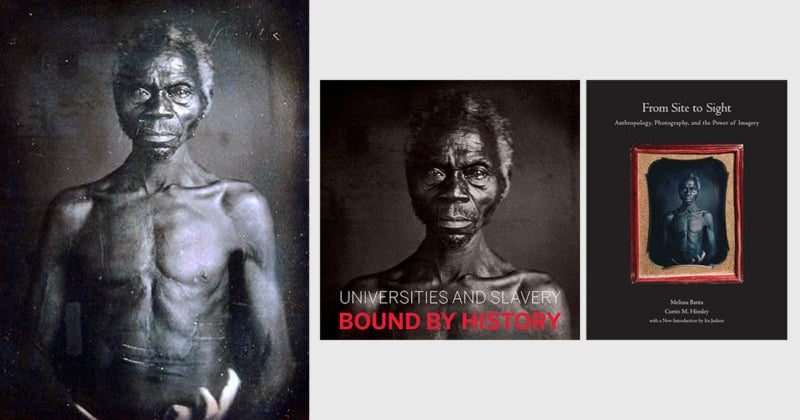Judge Rules Images of Enslaved Are Property of Harvard, Not Descendant
A Massachusetts judge has dismissed a woman’s lawsuit claiming that she is the rightful owner of the images of an enslaved father and daughter and not Harvard, the New York Times reports. The judge cites common law that the content of an image cannot be used to claim ownership of that image, regardless of the subject.
In 2019, Tamara Lanier sued Harvard for possession of daguerreotypes claiming that she was descended from those depicted in the images and that the school had profited from the exploitation of the images. The photos, which were taken in 1850, depicted the two enslaved individuals named Renty and Delia stripped to their waist. The photos were part of a project commissioned by Louis Agassiz, a prominent Harvard professor and zoologist, who used them as scientific evidence in a discredited theory that Black people were inferior.
The images remained hidden in the Harvard museum until 1976 and are considered to be the earliest known photographs of American slaves. You can read more about this story here as well as a discussion of the topic further here.
Justice Camille F. Sarrouf of the Middlesex County Superior Court wrote that despite the “horrific circumstances” that the photos were taken in, because the two depicted did not own the images when they were taken, their descendent Lanier did not own them either.

“Fully acknowledging the continuing impact slavery has had in the United States, the law, as it currently stands, does not confer a property interest to the subject of a photograph regardless of how objectionable the photograph’s origins may be,” she writes in her judgment. “It is a basic tenet of common law that the subject of a photograph has no interest in the negative or any photographs printed from the negative.”
When evaluating the details of the lawsuit, neither Harvard nor Judge Sarrouf disputed the evidence that Lanier was a descendent of Renty and Delia, but the judge did reject the claim that Harvard had exploited the photographs for financial gains by putting Renty’s image on the cover of a book. The judge stated that the right to control the commercial use of the photographs expired with the death of the subjects.
Lanier intends to appeal the decision.
“[The judge] completely missed the humanistic aspect of this, where we’re talking about the patriarch of a family, a subject of bedtime stories, whose legacy is still denied to these people,” she said in response to the ruling.